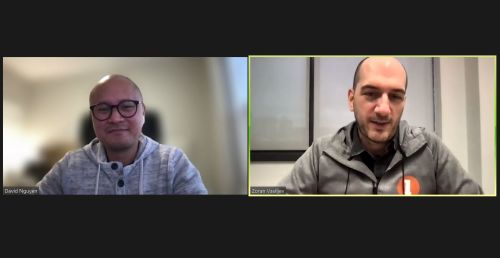author

published-on
09 Apr 2020
tags
PLAY, the biggest telco company in Poland, is taking an active role in country’s urban transportation and mobility ecosystem. With 15 million subscribers, the network is powering a growing mix of smart digital services going way beyond minutes, messages and gigabytes. It is estimated that half of the millennial and gen Z age groups in Poland are PLAY customers.
As their head of carrier billing, Łukasz Perzyński says, PLAY has been adding services that cater to the lifestyles of tech-savvy generations, eager to grab their phone in response to any need of urban or digital life. They range from paying for parking and taxi to renting electrical mopeds and paying for highway tolls. The list doesn’t end there, and there’s more to come.
According to Juniper Research, revenues generated for MNOs via carrier billing in Central and East Europe are expected to rise from USD 150 million in 2019 to USD 417 million in 2024. Most carrier billing transactions still involve digital content purchases. However, Juniper Research believes there’s an opportunity in other areas as well. By 2024, mobile ticketing, physical goods purchases and gambling could unlock around USD 42 million annual revenue for operators in Europe alone, according to the analyst company.
When it comes to transportation and ticketing, PLAY is already far down the road. Electrical mopeds rentals, popular with the urban youth in Warsaw, Wrocław and other cities, can be smoothly charged to their mobile plans. PLAY has teamed up with SkyCash and moBiLET, mobile applications that make it easy to buy tickets or pay for parking in more than 100 cities in Poland. Since recently, PLAY customers can also use their monthly bill to pay for road tolls when driving on the country's motorways, a development reported in the international telco media.
But it didn’t happen on its own, or without a network of partners. As Perzyński explains, creating an ecosystem of partners has been key to bringing many of these services to life so fast.
Clearly, PLAY is resolved to drive smart mobility, an area still facing a lot of fragmentation. Yet, there are clear opportunities for unification. Orchestration could benefit millions of people moving through and between cities every day, creating smooth experiences and reducing hassle involved in ordering and managing public transportation.
In February, PLAY announced a pioneering project with Centili and iTaxi, the leading ride-hailing marketplace in Poland. It is one of the first implementations of direct carrier billing in ticketing in the EU taxi industry, in which the cost of an individual ride is calculated upfront and charged to the rider’s mobile plan. This is notably different from traditional taxi charges, which can only be applied after the ride. By introducing tickets of this kind, taxi services have become easier to link with other urban transportation methods, which is a major step towards stronger participation in the Mobility as a Service (MaaS) model.
-We understand the value of different telco platforms, and we understand that the ecosystem can’t move forward if there’s no cooperation, a clear vision and a resolve to own and execute projects. Mobile network operators could be holding the key to the orchestration of natively mobile services into a smooth, enjoyable experience for drivers and riders across the country, Perzyński explains.
Yet, how far are we from there?
“Pay with PLAY” is a brand name for their carrier billing service and has already brought a level of unification to the multitude of services charged over PLAY. But the story could get broader. Mobile network operators in Poland are discussing the launch of carrier billing under a unified brand, which could boost adoption and recognition among end-users. Polish telcos certainly have the standing and capacity to assume a major role in micropayments. Implementations seen in the last nine months have been impressive; encouraging signals and developments are coming from across the community.
However, there are barriers to overcome. Most notably in bad debt handling and regulation, which keeps MNOs from opportunities in the physical goods space.
-If MNOs want to conquer payments, they need to implement credit scoring systems equipped with AI, to be able to understand user spending and payment habits on a more sophisticated level. A subscriber could be high spender but paying his or her bills on time. On the other hand, small purchases can mislead us into positive evaluation. Understanding these things on a deeper level and in real-time could improve our capacity to efficiently manage bad debt risks and become a more competitive payment method. This could be major in terms of further enablement of MNOs in the payments space, Perzyński explained.
When it comes to legal and regulation challenges, it’s worth noting that the catalogue of services that can be charged via carrier billing is still limited to digital content and ticketing. To go beyond that, MNOs need to have a payment license. But the outlook is optimistic - solutions could emerge through partnerships with mobile payments companies such as Centili.
As Łukasz Perzyński adds, carrier billing is only one piece of the puzzle in which native mobile services facilitate transportation and mobility. MNOs are holding many of the key pieces – from user identification to rich communication and customer engagement that RCS will bring.
-I think our approach at PLAY was promising because we kept an open mind and offered everyone a seat at the table. We involved many service providers, technology partners, integrators and great companies that innovate in the space. We are not afraid to learn and try new things. I believe MNOs hold the key to unlocking the full scope of opportunities, and I believe these past 9 months are just the beginning of a more substantial shift we’re about to see in the future, he said.





